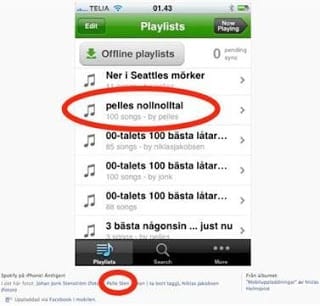Artists, from musicians to filmmakers, can promote themselves with just the click of the mouse. Unfortunately there is no way to send a thank you card to the Internet, but artists worldwide are grateful to have this powerful tool at their disposal. By harnessing technology while connected to Internet providers, artists can sell themselves and their work without the hassle involved in record labels, studios, or corporations. The do-it-yourself strategy, inherent in the Internet and social networking, is proving to be an attractive marketing option for musicians.

Digital music is a burgeoning market. Anyone can sell their albums via Amazon, iTunes, CD Baby, and a host of other outlets. In fact, forgoing the support of a record label can net a musician more money in album sales. Intermediaries have become the saving grace of independent artists. Sites, including DashGo and TuneCore, allow artists to download their CDs to a Web site. They then flood the major stores with the artist’s album for a flat rate or low monthly fee.
Digital music retailers take a cut of the profits from all sales. However, selling hard copies by hand or signing with a major label may not get the results desired. Going it alone can be much more advantageous. A smart option is using an outlet like CD Baby, which not only sells tracks and albums on its own Web site, but distributes the music of independent artists to major retailers, including Amazon and iTunes, for a slice of the profits. But be aware that putting music on the Internet doesn’t ensure sales. Artists must let fans, and potential fans, know that their album is for sale by using social networking sites, blogs, their own Web sites, e-mails, Twitter, and the variety of other options offered by Internet providers.
Streaming music on the digital music subscription services, Rhapsody or Spotify, allows more people to access the musician’s work. Since they are subscription services, this demographic pays a low monthly fee for all music and may be unlikely to purchase an entire album elsewhere. Reaching this base of music lovers is important, because more access means more attention. This could be the trick that gets the music noticed by a media outlet.

Musicians connected to the internet can engage in viral marketing to promote themselves by word of mouth. An entertaining music video will make people want to share it with their friends. Creating widgets that play tracks or video, that fans can embed on their social networking pages is another way to start a viral campaign. By giving away the occasional free track to well-connected fans and asking them to share it with friends, an artist can quickly build a following. You would need to check the best possible option for your service through your local internet providers to make sure you your music uploads will go through fast without dropping out.
The key to maximizing promotion efforts is becoming active on as many Web sites as possible. Web sites like Last.fm and Reverb Nation are amazing forms of social networking for artists. The sites allow musicians to post tracks, videos, pictures, bios, and more. Fans can link to the page and follow the artist, adding to the viral marketing aspect. On Web sites such as Soundcloud, musicians can post a few of their tracks. Don’t think of it as giving away free music. Instead, think of it as cheap advertising. Soundcloud is a community of musicians. By gaining followers, posting comments on other musicians’ pages, and following different artists, a musician can gain credibility and create connections with people who may have an “in” in the music industry. Similar benefits can come from posting comments on musicians’ forums. Including a link to a musician’s own Web site in all comments can drive up site traffic.

The Internet has created an arena for musicians to promote themselves. As in any other business it’s important for a musician to saturate social networking sites, digital music retailers, and various Web sites with their music. Creating widgets, MySpace music pages, Facebook music pages, an independent Web site, posting on Twitter, and getting the music in front of as many eyes as possible will bolster a musician’s chance of success. If musicians put in the effort to capitalize on the Internet and social networking, their name and music can potentially reach a vast amount of individuals on a global scale.





